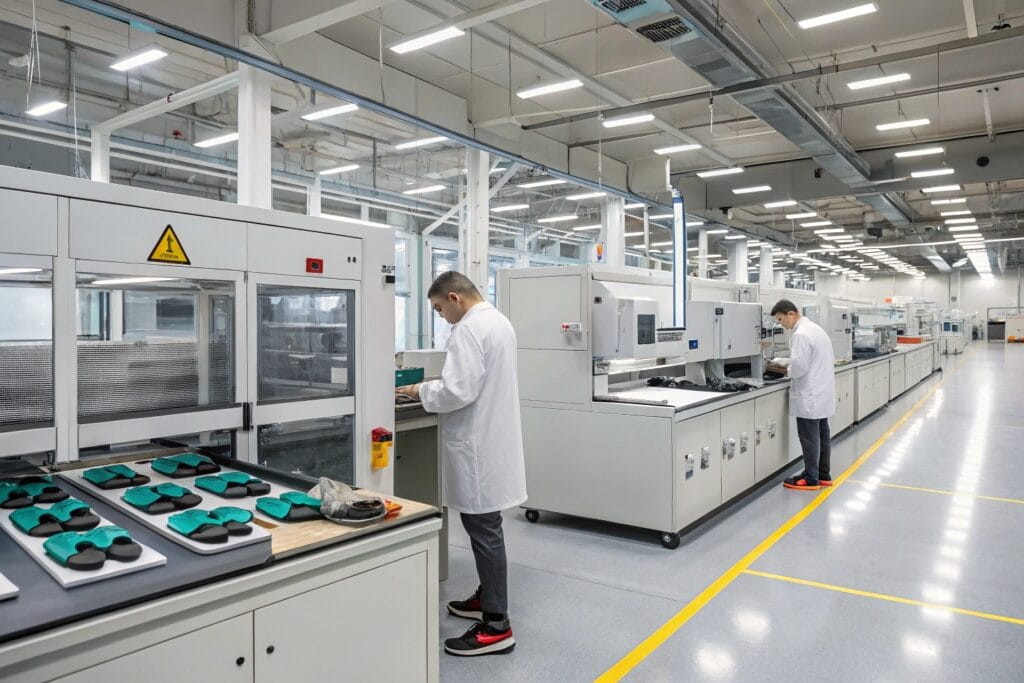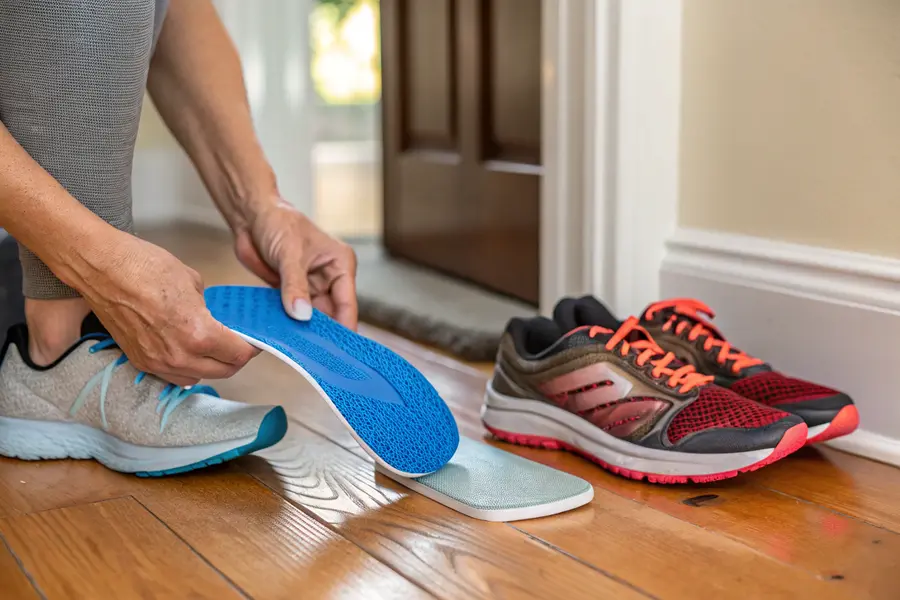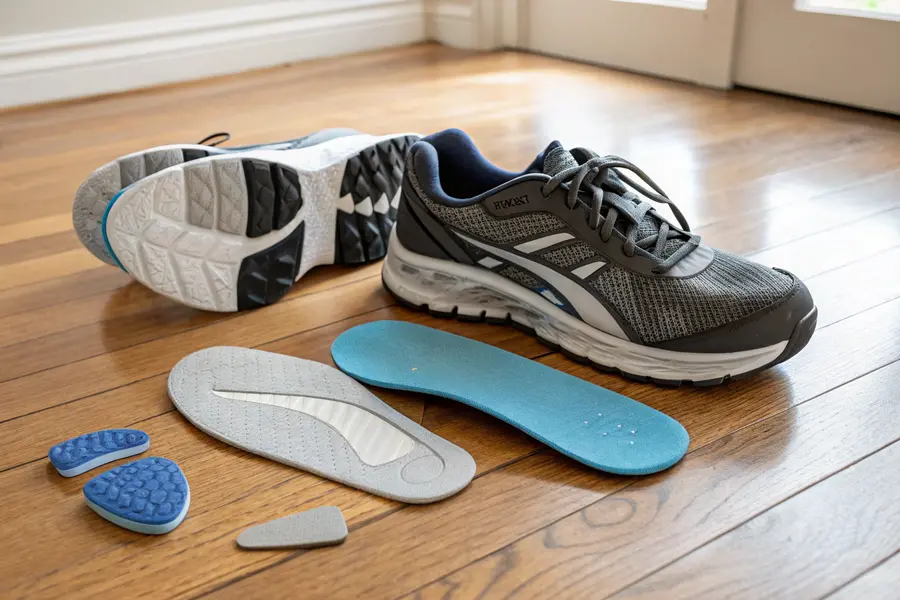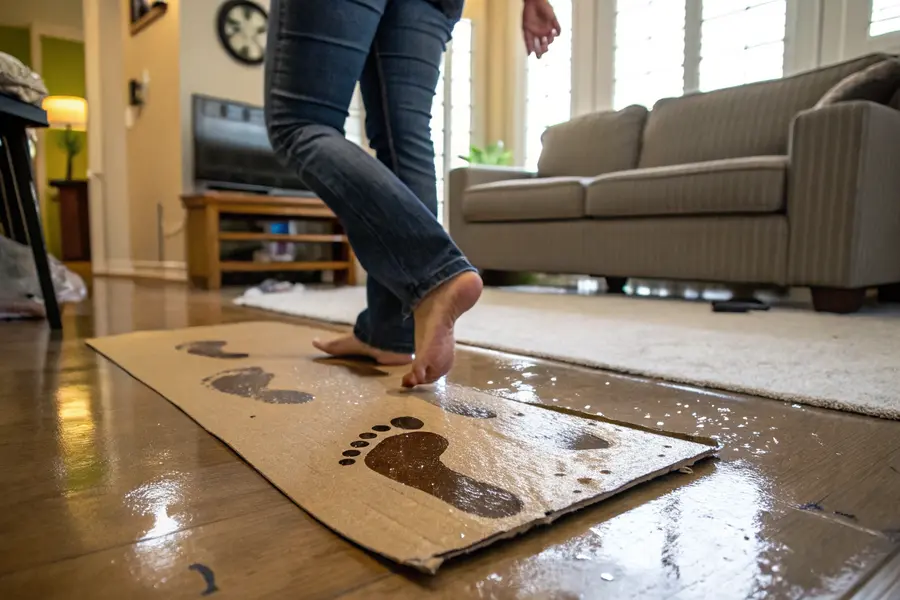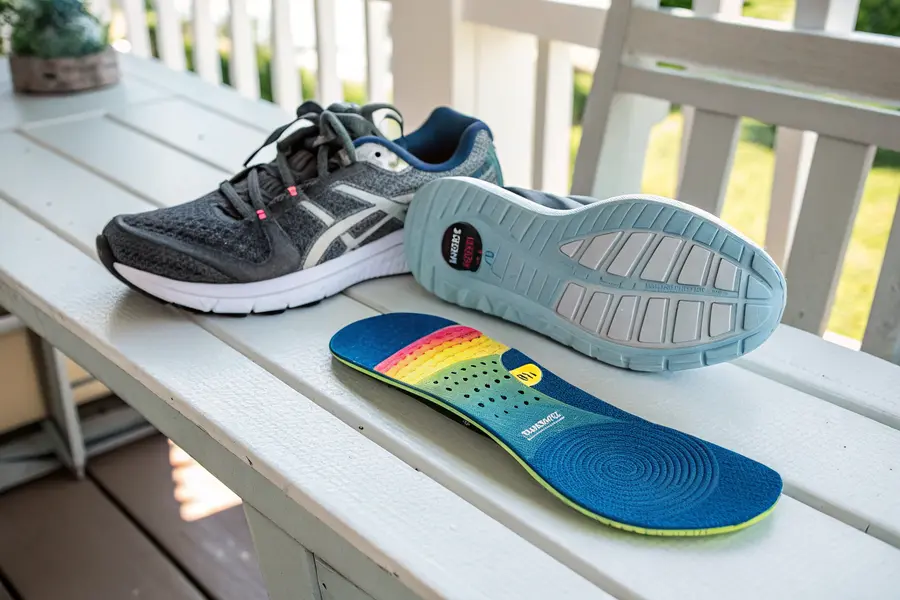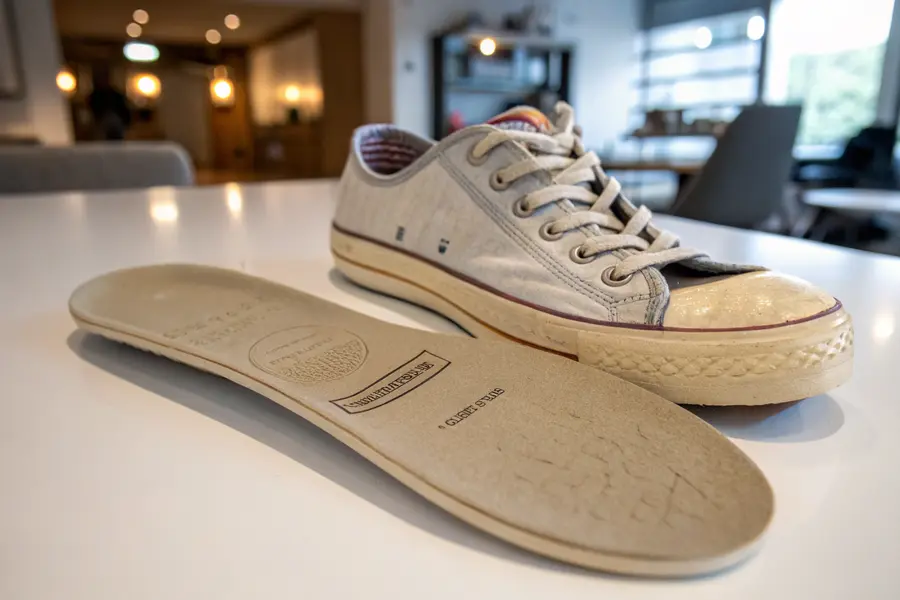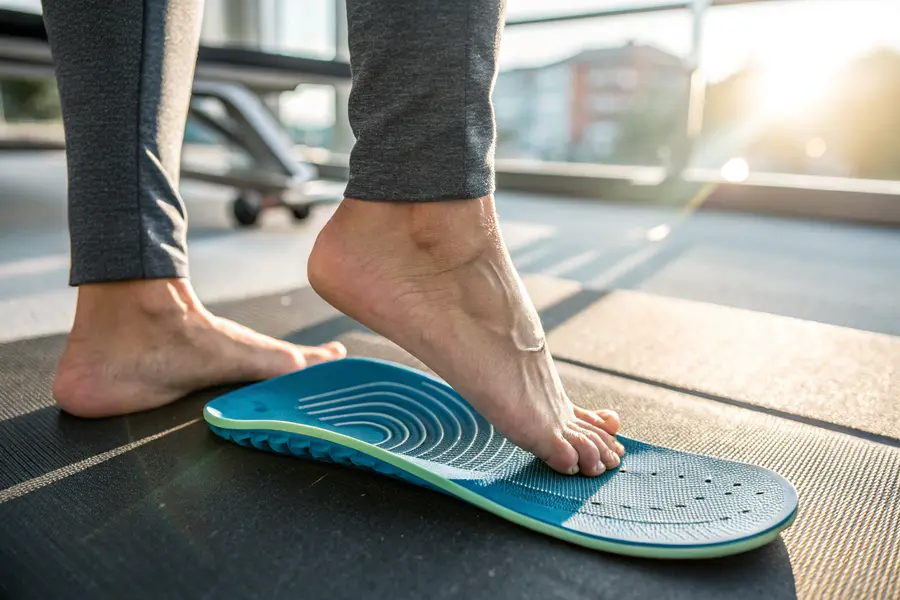When it comes to OEM partnerships in orthotic insoles, choosing the right supplier can make or break your success. The wrong choice? Missed deadlines, subpar quality, and unhappy customers. The right one? Seamless collaboration and a product line you’re proud to stand behind.
A Supplier’s professionalism is key to ensuring high-quality orthotic insoles in OEM partnerships.
What separates a great supplier from the rest? In this article, I’ll guide you through five critical dimensions to evaluate their professionalism step by step.
Table of Contents
ToggleWhy Are Medical Certifications and Compliance Important?
When assessing an orthotic insole supplier, certifications are like gold stars of trust. They prove the supplier meets industry standards for quality and safety.
Suppliers with CE, ISO 13485, or similar certifications ensure their insoles are medically safe and effective.
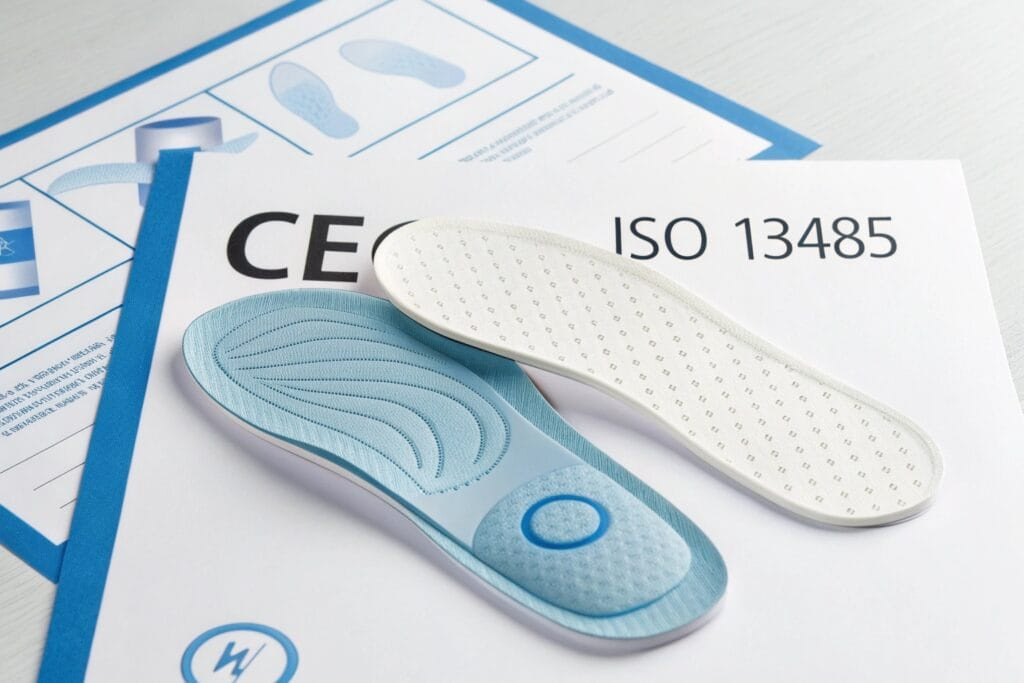
Dive deeper: What certifications really tell us?
Certifications are not just about compliance; they show a supplier’s commitment to professionalism. For example:
- CE Mark: This ensures conformity with European health, safety, and environmental protection standards. Essential for brands exporting to Europe.
- ISO 13485: This standard focuses on medical device quality management systems. It reassures clients that processes are consistent and products are reliable.
- FDA Approval: For U.S. markets, this validates medical-grade insoles for therapeutic use.
A supplier with these certifications signals reliability. It’s the foundation of trust in any OEM partnership.
What happens without compliance?
Without compliance, you risk distributing unsafe or ineffective products. This could lead to recalls, brand reputation damage, or, worse, harm to consumers. Certifications act as your safety net.
How Do Materials and Mold Compatibility Impact Your Product?
Materials are the building blocks of orthotic insoles. A professional supplier should offer a wide variety, from EVA to Ortholite, and adapt molds to your specific design needs.
The right materials and molds ensure product adaptability for diverse customer needs.
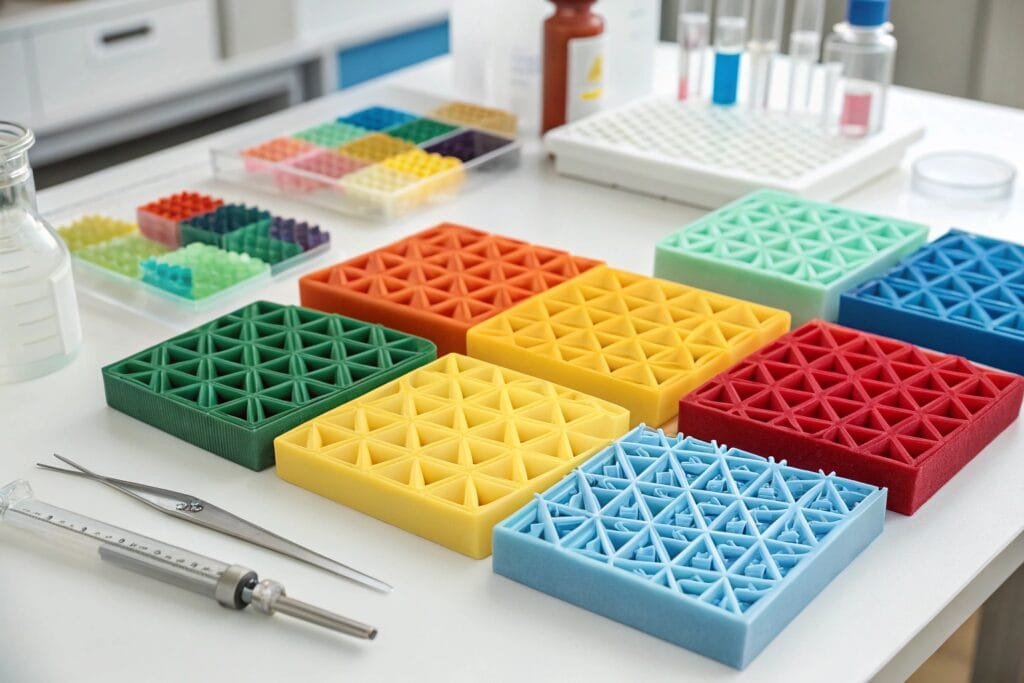
Dive deeper: Why does compatibility matter?
Imagine you’re launching a range of running shoes. Your target customers include elite marathon runners and weekend joggers. A supplier with extensive material options can provide:
- High-rebound EVA: Ideal for performance athletes needing energy return.
- Poron cushioning: Perfect for casual users prioritizing comfort.
On the mold side, compatibility ensures seamless integration with shoe designs. Whether you need high-arch support or flat insoles, the supplier must match your technical specifications with precision.
A quick material comparison:
| Material | Best For | Key Features |
|---|---|---|
| EVA | Sports performance insoles | Lightweight, shock-absorbing |
| Ortholite | Everyday comfort insoles | Breathable, moisture-wicking |
| PU Foam | Medical-grade insoles | Durable, customizable density |
What to avoid?
A supplier with limited material options or rigid molds restricts your ability to innovate. This can result in generic products that fail to meet market demands.
Can They Meet Your Customization and Design Needs?
In today’s competitive landscape, one-size-fits-all products don’t cut it. A supplier’s ability to cater to unique customer demands is non-negotiable.
Custom design capabilities ensure your insoles stand out in the market.
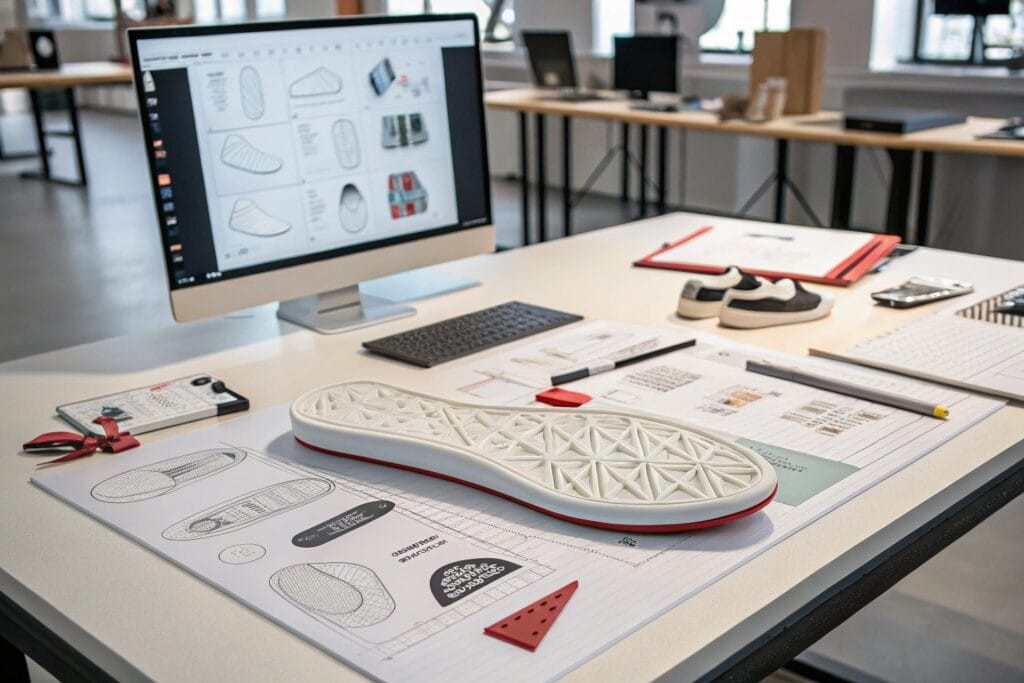
Dive deeper: What sets top suppliers apart?
Customization comes down to flexibility. A professional supplier should offer:
- OEM Customization: Tailored designs based on your branding needs.
- ODM Services: Ready-to-market solutions that align with current trends.
- Design Speed: Rapid prototyping ensures you stay ahead of competitors.
For instance, Footcool provides insoles tailored for specific sports like cycling or hiking. This level of specialization can elevate your brand’s identity.
How to test customization capabilities1?
Start by requesting samples. Evaluate their responsiveness and whether they can meet your design expectations. A professional supplier communicates clearly and delivers samples promptly.
What’s the risk of poor customization?
A rigid supplier slows you down. Missed trends and unappealing designs lead to lost market share. Customization is your secret weapon for market differentiation.
Are Production Efficiency and Quality Control Up to Standard?
Reliable suppliers deliver consistent quality, on time. Without this, even the best designs can fail.
Production efficiency and robust quality control ensure timely delivery and superior products.

Dive deeper: What to check for?
- ISO 9001 Certification: This verifies quality management systems are in place.
- Automated Processes: Advanced machinery reduces errors and speeds up production.
- Inspection Protocols: From raw materials to final products, thorough checks are essential.
For example, Footcool employs a dual-layer inspection system. First, they test materials for durability. Then, they assess finished insoles for comfort and support. This minimizes defects and ensures customer satisfaction.
What’s the cost of inefficiency?
Production delays or quality issues can disrupt your supply chain. Your customers expect reliability, and any lapse reflects poorly on your brand.
Does Their Customer Service Build Long-Term Relationships?
Great partnerships rely on seamless communication. A supplier should act as an extension of your own team.
Responsive and clear communication fosters trust and resolves issues quickly.

Dive deeper: How to evaluate customer service?
Great suppliers provide:
- Dedicated Account Managers: A single point of contact streamlines communication.
- 24/7 Support: Time zone differences shouldn’t delay responses.
- Problem-Solving Ability: Whether it’s a production delay or design tweak, a good supplier handles it efficiently.
For example, Footcool responds to client queries within 12 hours on average. This speed ensures problems don’t escalate and projects stay on track.
What happens with poor communication?
Misunderstandings lead to errors in production or delays, both of which can cost you time and money. A supplier that communicates well acts as a true partner, not just a vendor.
Conclusion
By assessing medical certifications2, material compatibility, customization capabilities, production efficiency3, and customer service, you can identify a professional supplier. These five dimensions ensure your OEM partnership leads to top-quality orthotic insoles that enhance your brand’s reputation and meet customer needs.
Learning about customization capabilities can help you differentiate your products in a competitive market, enhancing your brand’s appeal. ↩
Understanding medical certifications helps ensure you choose a reliable supplier that meets industry standards for safety and quality. ↩
Exploring production efficiency can reveal how it affects product quality and delivery timelines, crucial for maintaining customer satisfaction. ↩

